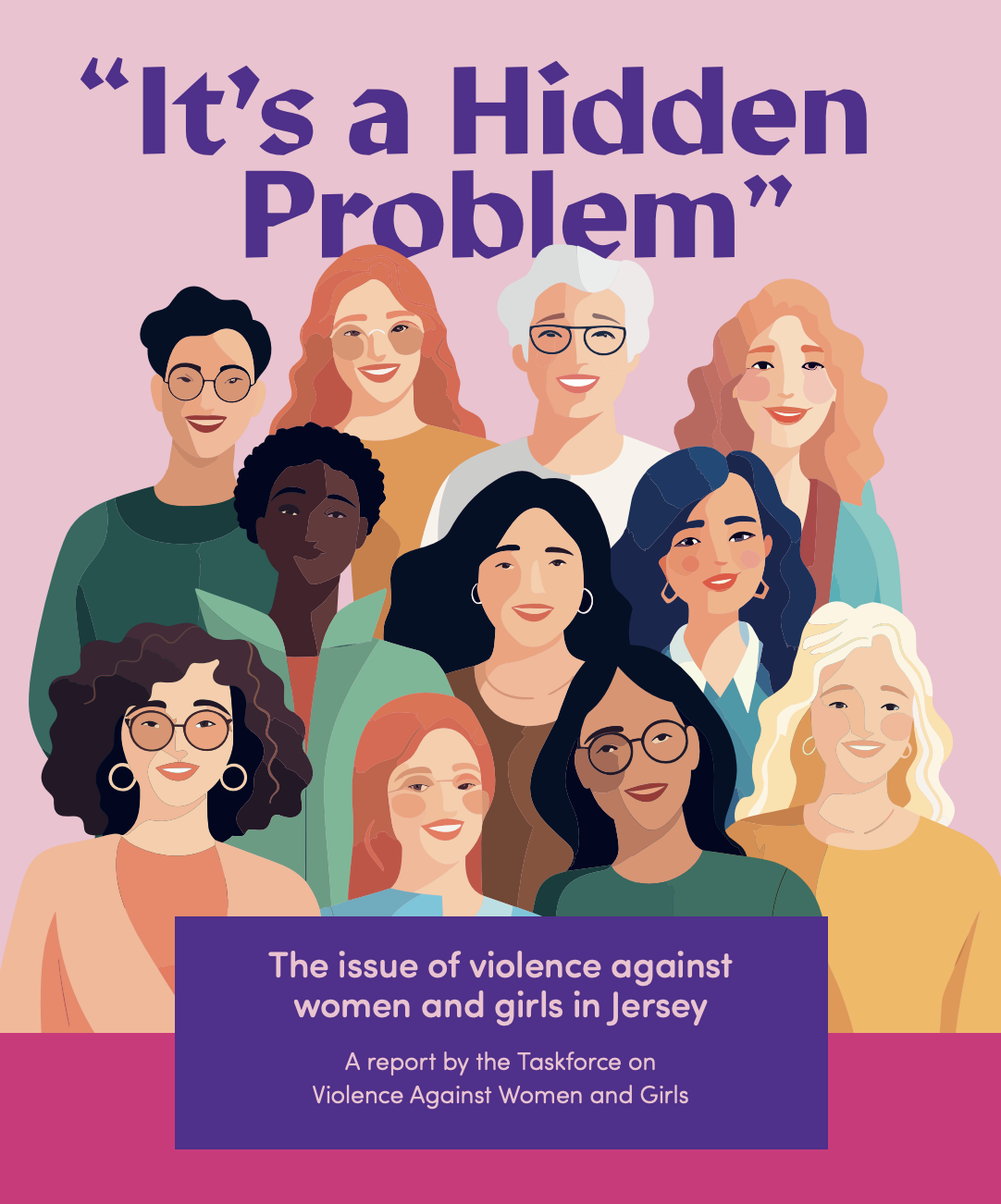


Islanders are “sickened” and “very angry” following a landmark court ruling which saw three years shaved off a convicted rapist’s prison sentence – and is expected to change the way similar cases are handled in future.
Convicted rapist Fabio Manuel De Jesus Nunes successfully petitioned to Jersey's Court of Appeal, which reduced his custodial sentence from nine years and six months to six years and eight months.
In response, the leader of a gender-based violence taskforce which found that there was a serious lack of trust in Jersey's criminal justice system said the decision had made the island’s women “sickened” and “very angry”.

Pictured: Kate Wright, Chair of the Violence Against Women and Girls (VAWG) taskforce.
Kate Wright, Chair of the Violence Against Women and Girls (VAWG) Taskforce, was responding to the judgment published last week.
Nunes was sentenced in the Royal Court in April after raping a "slumped and unconscious" woman in her home last September. He was jailed for nine years and six months.
But Nunes has now had his his custodial sentence reduced to six years and eight months following a successful petition to Jersey's Court of Appeal.
During his appeal, the court ruled that it is wrong to routinely use English sentencing guidelines to determine sentences in Jersey in cases involving rape or sexual violence – something which is likely to set a precedent and impact future cases.
After hearing arguments that Nunes' sentence was "manifestly excessive", the Appeal Court – Clare Montgomery KC, sitting as president with Sir William Bailhache and Sir Adrian Fulford – decided the approach by the Royal Court, ensuring that a sentence would not be lower than one calculated using English guidelines, was wrong.
Explaining the court's decision, Sir William said: "It is one thing to say that the Royal Court may in an appropriate case, particularly in the absence of any local guidelines or cases from which a pattern of sentences can be ascertained, decide to have regard to what sentences might be passed elsewhere.
"It is quite another routinely to look to what the sentence would be on the application of the guidelines and then reach conclusions or pass sentence on that basis."

Pictured: Jersey's Court of Appeal recently ruled that it is wrong to routinely use English sentencing guidelines to determine sentences in Jersey in cases involving rape or sexual violence.
Although factors in the guidelines are often helpful in deciding the seriousness of offending, sentencing levels were not necessarily appropriate in every case, the court found.
The Appeal Court stressed that this did not prevent the Royal Court from increasing the severity of sentences for rape and sexual assaults if it thought fit.
However, it was wrong simply to apply English starting points and sentencing levels as though they were part of the Jersey sentencing process.
Reviewing Nunes' case, the court decided that there would be "at least an argument" that a ten-year starting point – compared with the 14-year starting point adopted – was too high. It also noted that Nunes had no previous convictions and admitted the offences as soon as the Magistrate's Court required him to enter a plea.
Sir William said: "In our judgment the appropriate sentence on [the rape] counts ... would be six years, eight months' imprisonment concurrent, and we substitute that sentence for that imposed by the Royal Court."
Kate Wright, an HR consultant and cultural change specialist, who led recent research on violence against women and girls in Jersey, responded with a blistering attack on the courts, saying that the island's women "demand better".
She said: "I am sure there are all sorts of complex legal nuances that the Jersey Appeals Court judges took into consideration when they arrived at the decision to cut a sentence for rape by three years.
"However, the response from the women who contacted me when they read the outcome of the appeal was very simple: sickened and very angry.
"And I share those sentiments."

Pictured: Published last year, the VAWG report outlined 77 key recommendations to tackle the "very real" issue of violence against women and girls in Jersey.
Ms Wright continued: "Following the findings of the VAWG [Violence Against Women and Girls] report last year – where a lack of trust in the criminal justice system weighed heavily – we expect and demand better from our Courts.
"I very much hope that, as we see the recommendations of the report implemented over the next few years, we will soon start to see real justice for victims of gender based violence in Jersey and confidence grow in the system.
"The Government, the police, support agencies and now workplaces too have accepted the findings and are taking real action. We need the Courts to show us they are listening too."

Pictured: "My fear is that this will lead to a number of conviction appeals."
Mrs Wright also included a direct quote from a woman who made contact with her.
This woman said the ruling seemed like a "significant departure from the strides being taken in addressing gender-based crimes on the island" and "potentially setting a dangerous precedent for sexual assault perpetrators".
"My fear is that this will lead to a number of conviction appeals, on the heels of the findings of the taskforce, which cited the very issues of distrust of our criminal justice system, poor legal outcomes, and a lack of clarity around sentencing as patterns of concern for victims," she added.
The VAWG taskforce – a team made up of politicians and professionals working in the charitable and justice sectors – published a report outlining key ways to tackle the "very real" issue of violence against women and girls in Jersey last year.
Among its 77 recommendations to Government and other agencies, it called for an independent review of the Jersey criminal justice system in relation to domestic abuse, rape and serious sexual assault – and a similar review of the family court system.
WATCH: A breakdown of the VAWG report. (Warning: contains descriptions of sexual assault, assault, and other forms of violence against women)
It also found that "gaps" in Jersey's legislation were "undermining the ability of the criminal justice system to protect victim-survivors or effectively manage perpetrators".
Victim testimonies featured in the report revealed that a lack of trust in institutions has become a "barrier" to reporting – with concerns that "emotional abuse isn't seen as serious enough for the police".
The Government accepted all recommendations from the Violence Against Women and Girls report, and is working to implement them.
Comments
Comments on this story express the views of the commentator only, not Bailiwick Publishing. We are unable to guarantee the accuracy of any of those comments.